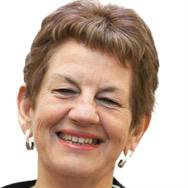Most of us will know someone who is having a Dry January – the term is fast becoming part of our social landscape. It is only four years since the charity Alcohol Concern launched the behaviour change campaign to try to get Britain to rethink its attitude to booze. Last year two million people claim to have taken part. Jackie Ballard FRSA, CEO of Alcohol Concern, explains why they hope even more people will join in 2016.
The aim of the campaign is to start a new conversation about alcohol, to get people thinking and talking about their drinking and ultimately to inspire behaviour change following a positive and fun filled month of sobriety! We want you to be able to go to that party, captain the pub quiz team, head off on that long weekend. But we want you to be able to do it alcohol free.
When people ask why you aren’t drinking, you can bring them into the challenge as well.
However, this is not a detox programme or for those with dependency issues. Anyone in that category needs to seek medical help. Dry January is aimed at the huge numbers of people who are steadily drinking a bit too much, too often – without realising the effect it’s having on their health. That ‘cheeky’ bottle of wine after the kids are in bed, the Friday night after work binge when you can’t quite remember what happened – they are all storing up problems for the future. Most people know of the link between alcohol and liver disease, but what about the links with high blood pressure, cancer, obesity, depression, heart problems?
Dry January really works
The Alcohol Concern Dry January campaign is different to others –we offer support through online communities and an email programme, encouraging people to see the month through, offering them non-alcoholic alternatives, and also opportunities to talk to health professionals. This year there is even a Dry January app to help people record their progress and there are special offers from our corporate partners for those who register to do Dry January.
Research has shown that Dry January is an effective behaviour change campaign. Research on 2015 participants showed 67% of them had sustained reduced levels of drinking six months after completing Dry January. The study of moderate drinkers, showed improvements in concentration and sleep patterns, as well as positive impacts on blood sugar levels, blood pressure and the liver.
Prof Kevin Moore of the Royal Free Hospital said in The Independent:
“ When you give up alcohol [for one month] … there is a significant reduction in blood pressure, a significant reduction in cholesterol, [and] an improvement of glucose and insulin resistance which has a major impact on both maturity onset diabetes as well as the development of fatty liver disease.”
“If [a clinical trial] had a drug that lowered blood pressure by the amount we’ve observed in those that stopped drinking alcohol, the company would be excited beyond belief. If they then also found it reduced cholesterol, they would be doubly excited”.
We also know from previous years that people who do Dry January will feel better, lose weight and save money.
- 79% of participants saved money
- 62% of participants had better sleep and more energy
- 49% of participants lost weight
Alcohol is deeply embedded in much of British culture and activities, and people are often quizzed about why they’re not drinking. Dry January gives a great reason and the confidence to say No and to carry on saying no after January is over.
What have you got to lose?
Sign up at www.dryjanuary.org.uk.
Join in the conversation by following Dry January on Twitter, @DryJanuary and liking us on Facebook.com/DryJanuary
Related articles
-
From Rat Park to Housing First
Rosie Phillips FRSA
To mark their 20th anniversary, DHI are running The Vision Project. Through a series of articles, podcasts and events during 2019, they are inviting people to contribute their ideas of how society can end social exclusion over the next 20 years. Here is an extract from Rosie’s blog. That can be read in full here
-
Blog: Why the War on Drugs is Failing
Sunny Dhadley
Sunny Dhadley FRSA explores why the war on drugs is failing, partly in light of a recent conference, ‘Drug Policy, Diplomacy and Global Public Health’.
-
Blog: How changing my relationship with alcohol reconnected me with my values
Laura Willoughby
Laura Willoughby MBE, Co-Founder of Club Soda explains why she stopped drinking alcohol and how it enabled her to reconnect with the social values that caused her initial desire to improve society.



Be the first to write a comment
Comments
Please login to post a comment or reply
Don't have an account? Click here to register.